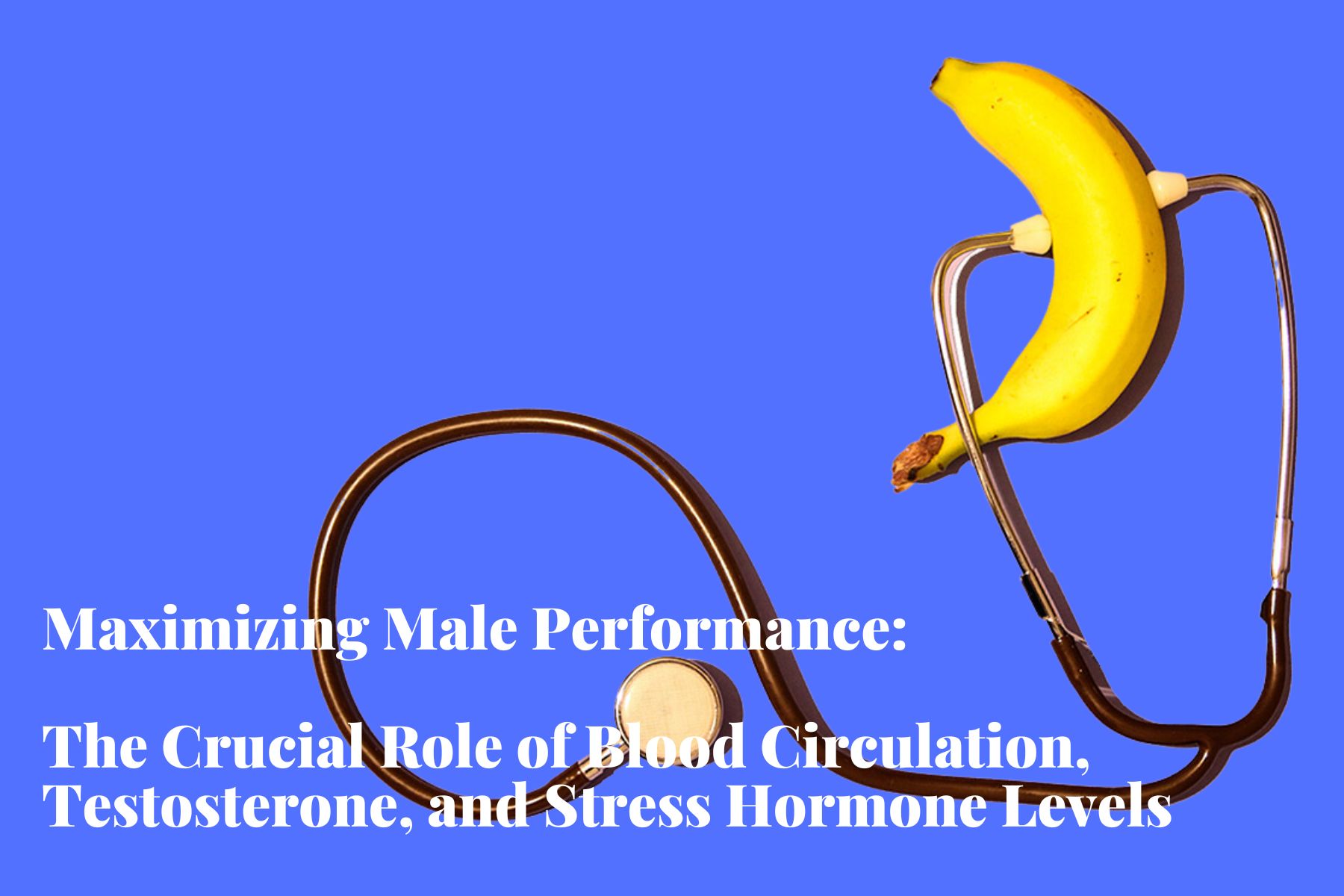CATEGORY: DELAY EJACULATION
Maximizing Male Performance: The Crucial Role of Blood Circulation, Testosterone, and Stress Hormone Levels

Maximizing Male Performance: The Crucial Role of Blood Circulation, Testosterone, and Stress Hormone Levels
Male performance, encompassing erection quality, control, and overall vitality, is influenced by several key physiological factors. The primary drivers include optimal blood circulation, high testosterone levels, and low stress hormone levels. When these elements are balanced and functioning at their best, male performance can reach its peak, significantly reducing the risk of erectile dysfunction (ED).
Good Blood Circulation
Blood circulation is paramount for achieving and maintaining erections. Erections occur when the penile blood vessels dilate, allowing blood to flow into the erectile tissues. Healthy blood circulation ensures that this process happens efficiently, leading to firmer and longer-lasting erections. Poor circulation, often due to cardiovascular issues or unhealthy lifestyle choices, can impede this process, resulting in erectile dysfunction.
To boost blood circulation:
* Exercise regularly: Physical activity strengthens the cardiovascular system.
* Eat a balanced diet: Foods rich in antioxidants, such as berries, nuts, and leafy greens, improve blood vessel function.
* Avoid smoking and excessive alcohol: Both can damage blood vessels and reduce blood flow.
High Testosterone Levels
Testosterone, the primary male sex hormone, plays a crucial role in libido, energy levels, muscle mass, and overall vitality. Low testosterone levels can lead to reduced sexual desire, fatigue, and diminished performance, all contributing to erectile dysfunction. Maintaining high testosterone levels is essential for peak sexual and physical performance.
Ways to enhance testosterone levels include:
* Regular strength training: Lifting weights and high-intensity interval training (HIIT) can boost testosterone.
* Healthy diet: Include zinc-rich foods, such as meat, shellfish, and legumes, which support testosterone production.
* Adequate sleep: Sleep deprivation can lower testosterone levels. Aim for 7-9 hours of quality sleep per night.
Low Stress Hormone Levels
Stress and anxiety are significant inhibitors of male performance. High levels of cortisol, the primary stress hormone, can negatively impact testosterone production and blood flow, leading to erectile dysfunction and reduced libido. Managing stress effectively is crucial for maintaining sexual health and overall well-being.
Strategies to lower stress hormone levels:
* Mindfulness and meditation: Practices like meditation, deep breathing, and yoga can reduce stress.
* Healthy lifestyle: Balanced nutrition, regular exercise, and sufficient sleep help manage stress.
* Psychological support: Counseling or therapy can be beneficial for managing chronic stress and anxiety.
Erectile Dysfunction and Its Connection to Blood Circulation, Testosterone, and Stress
Erectile dysfunction (ED) is a common condition where a man has difficulty achieving or maintaining an erection. It can be a source of significant stress and anxiety, further exacerbating the problem. The interplay between blood circulation, testosterone levels, and stress hormones is critical in understanding and managing ED.
1. Blood Circulation and ED: Adequate blood flow is essential for achieving an erection. Conditions like hypertension, atherosclerosis, and diabetes can impair blood circulation, leading to ED. Regular cardiovascular exercise, a diet rich in heart-healthy nutrients, and avoiding smoking can improve blood flow and reduce the risk of ED.
2. Testosterone and ED: Low testosterone levels can lead to decreased libido and erectile function. Testosterone is vital for maintaining the physiological processes involved in erections. Aging, chronic illnesses, and lifestyle factors can lower testosterone levels, making it crucial to engage in activities that boost this hormone naturally, such as strength training, consuming a balanced diet, and ensuring adequate sleep.
3. Stress and ED: High stress levels and elevated cortisol can disrupt the hormonal balance necessary for erections. Psychological factors like anxiety and depression can also contribute to ED. Managing stress through mindfulness, meditation, and seeking psychological support can significantly improve erectile function.
Optimizing Performance and Preventing Erectile Dysfunction
By focusing on improving blood circulation, boosting testosterone levels, and reducing stress hormones, men can significantly enhance their sexual performance and vitality while reducing the risk of erectile dysfunction. Adopting a holistic approach that includes a healthy lifestyle, balanced diet, regular exercise, and stress management techniques is the key to achieving and maintaining peak male performance.
Incorporating natural supplements and seeking professional advice can also provide additional support in optimizing these critical drivers of male health. Programs like Zesttee’s Limitless Program offer a structured approach to addressing these factors comprehensively, helping men unlock their full potential and prevent erectile dysfunction.
For more information on enhancing male performance and preventing erectile dysfunction, visit Zesttee’s Limitless Program.


